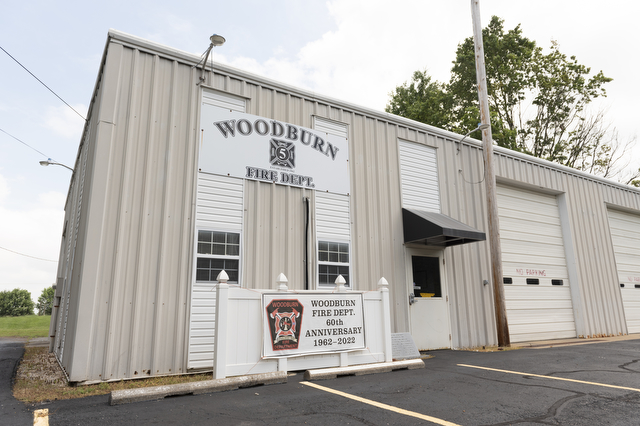Ky. Supreme Court upholds Logan murder conviction
Published 6:00 pm Saturday, June 15, 2019
A Logan County man’s murder conviction and 55-year sentence has been affirmed by the Kentucky Supreme Court.
George Walker, 24, was found guilty last year of murder and tampering with physical evidence in connection with the death of his sister-in-law, 23-year-old Allison Walker.
Jurors at the trial in Logan Circuit Court heard evidence that Allison Walker was strangled Dec. 21, 2015, at the Conn Road home in Adairville where she lived with her husband, Chris Walker, and George Walker.
Allison Walker’s body was recovered from the Red River near her home, wrapped in a blue tarp and bound with rope at her hands and legs.
During the trial, jurors watched police body camera footage of George Walker confessing to the crimes while speaking with a Logan County Sheriff’s Department deputy and heard testimony that Walker directed authorities to the location of Allison Walker’s body.
The state Supreme Court reviewed the case and issued its ruling Thursday upholding the conviction.
Walker’s appeal was based on two arguments – a mistrial should have been declared when jurors saw a portion of his video-recorded statement to police that both sides agreed would not be shown, and that his confession should have been suppressed because his rights were violated in the process of police obtaining it.
During the trial, then-Logan County Commonwealth’s Attorney Justin Crocker played the footage of Walker’s confession, and inadvertently showed a portion of the interview when a deputy asked Walker if he would be willing to submit to a polygraph examination.
Crocker muted the video following the question and Walker’s defense team, led by court-appointed attorney Nathan Beard, requested a mistrial, arguing that the jury might infer that Walker did not want the jury to know the truth.
Crocker argued there was no indication whether Walker agreed to or declined a polygraph.
Logan Circuit Judge Tyler Gill denied the motion for a mistrial and admonished the jury to disregard the question about the polygraph exam, going on to note that Walker did not refuse to take a polygraph, no exam was given and the results of a polygraph are unreliable.
The state Supreme Court agreed with Gill’s decision, determining that Walker’s defense was not harmed by the judge’s admonition.
“The admonition explained to the jury that polygraphs are ‘worthless’ and inadmissible,” the Supreme Court ruling stated. “In addition, the admonition told the jury that (Walker) did not refuse to take a polygraph, which most likely would have been viewed favorably toward (Walker).”
The Supreme Court also unanimously ruled that police acted properly in informing Walker of his rights during an interview when he was not in custody.
Walker was advised multiple times during the interview that he was under no obligation to continue the interview, and Walker communicated awareness that he was not under arrest at the time.
After Walker’s confession, he was detained, handcuffed and read his rights once more, after which he repeated his confession.
“The officer informed (Walker) that he had the right to an attorney on more than one occasion,” the ruling said. “Furthermore, when (Walker) was interacting with the police, he was not the primary suspect. The police suspected (Walker’s) brother was to blame and were merely talking with (Walker) to assist with that investigation. Although he may now regret it, (Walker) made the voluntary decision to talk with police.”






